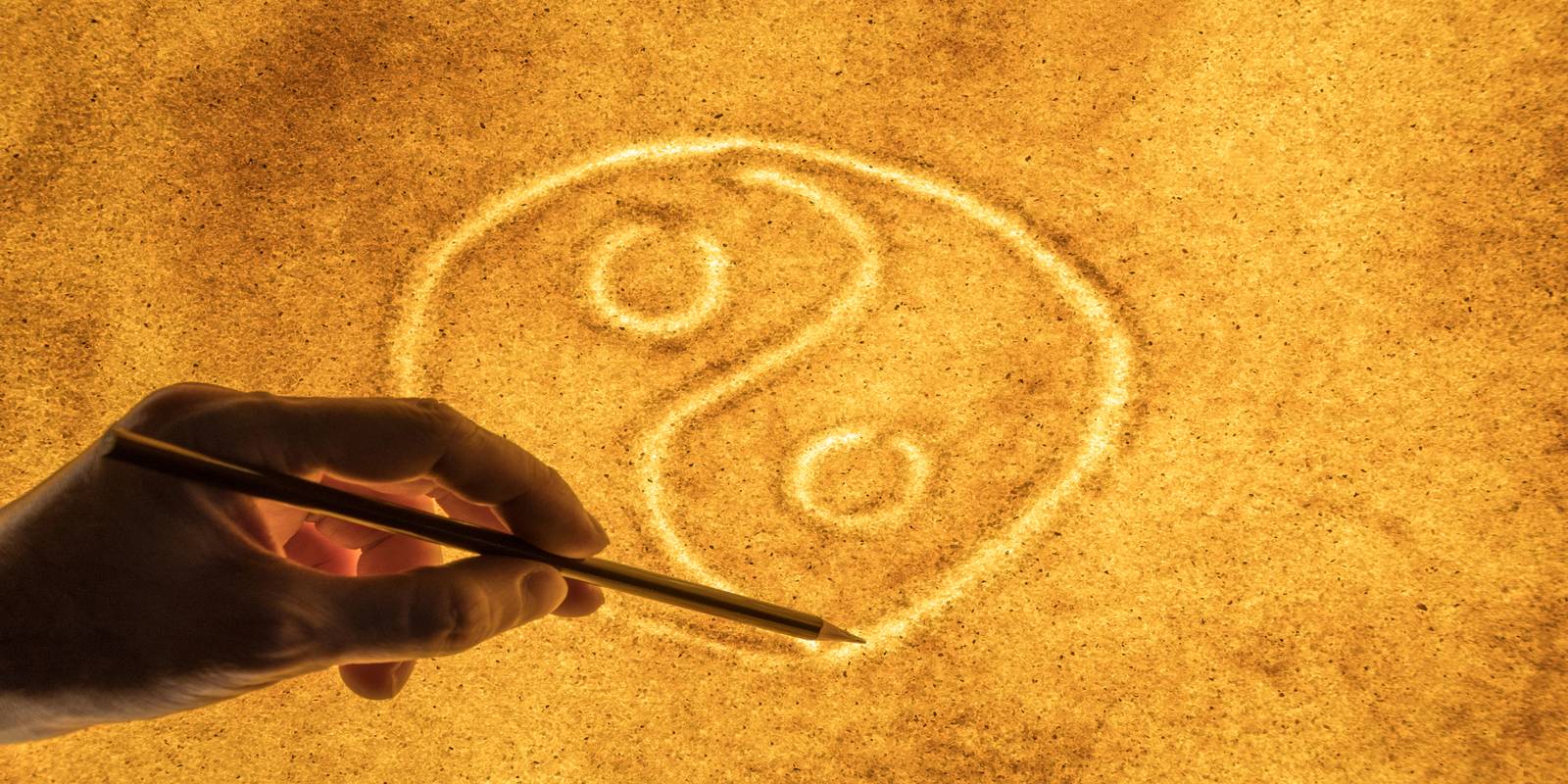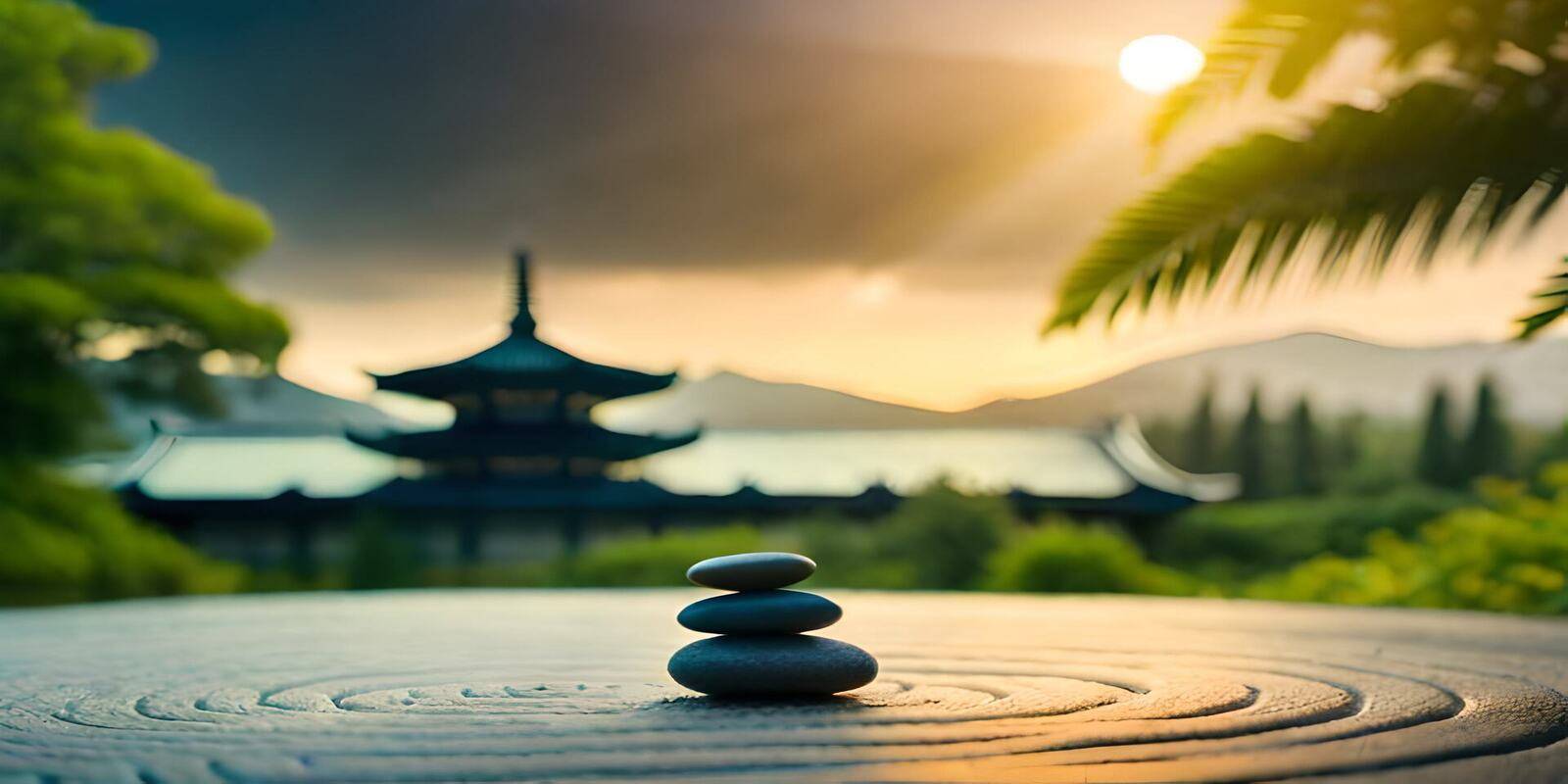Taoism, also known as Daoism, is a religious and philosophical tradition that originated in China. It emphasizes living in harmony with the Tao, the fundamental principle that flows through all of existence. Taoism core beliefs have influenced Chinese culture for centuries, shaping spiritual practices, moral values, and traditional rituals. This profound tradition extends beyond China, offering a unique perspective on the universe, human nature, and the pursuit of balance in life. For a deeper understanding, explore these facts about Taoism to see how its teachings continue to shape modern thought and practice.
Origin and Evolution of Taoism
Taoism originated alongside Confucianism, emerging as a distinct philosophical and religious tradition in ancient China. Its foundational principles center on living in harmony with the Tao, the ultimate force that guides the universe. A key figure in Taoism’s development is Laozi (Lao Tzu), a sage credited with writing the Tao Te Ching (Daodejing), an 81-chapter text that explores the essence of the Tao (the Way) and Te (Virtue). This influential scripture remains central to Taoist thought, offering profound insights into the nature of existence, self-cultivation, and balance.
Taoism’s evolution has been deeply interwoven with Chinese spirituality, drawing from early nature worship and divination practices. Ancient shamans and sages observed the rhythms of the cosmos, seeking to align human life with the natural order. Over centuries, Taoism adapted to societal changes, integrating elements of folk traditions, alchemy, and meditative disciplines. It has influenced not only spiritual beliefs but also traditional Chinese medicine, martial arts, and governance. Despite evolving interpretations, the essence of Taoism remains unchanged: embracing the flow of life, cultivating inner harmony, and recognizing the interconnectedness of all things.
Taoism Core Beliefs
Concept of ‘Dao’
The concept of Dao (Tao) lies at the heart of Taoism, representing the ultimate principle that governs the universe. It is often translated as “the Way,” but its meaning extends beyond a simple path or method. The Dao is the natural order of existence, an all-encompassing force that both precedes and permeates the universe. It is intangible, unnameable, and beyond human comprehension, yet it manifests in everything.
Taoism core beliefs emphasize aligning with the Dao by embracing the natural flow of life rather than resisting it. Everything in the universe moves in cycles, constantly transforming according to the Dao’s rhythm. This ceaseless change is driven by Qi (Chi), the vital energy that sustains life and maintains balance in the cosmos. By cultivating harmony with the Dao, individuals can attain peace, wisdom, and a deep understanding of existence. Taoist philosophy teaches that forcing outcomes leads to disharmony, while effortless action (Wu Wei) allows one to move with the natural currents of life. Recognizing that nothing is static, but rather in a state of continuous transformation, is key to grasping the essence of the Dao.
Principle of ‘Wu Wei’
The principle of Wu Wei is a fundamental aspect of Taoism core beliefs, often translated as “non-action” or “effortless action.” However, it does not imply passivity or inaction. Instead, Wu Wei refers to acting in alignment with the natural flow of the Dao, allowing events to unfold without force or resistance. It is the art of moving with life’s currents rather than against them, fostering a state of ease, adaptability, and spontaneity.
Wu Wei teaches that when one lets go of excessive control and overthinking, actions become effortless and effective. This state of creative passivity enables individuals to respond intuitively rather than relying on rigid logic or forceful effort. By maintaining inner tranquillity, a person can take the right action at the right moment, achieving results with minimal struggle. In nature, rivers carve through mountains not by force, but by flowing naturally over time—this embodies the essence of Wu Wei.
Practicing Wu Wei leads to greater harmony in life, relationships, and decision-making. It encourages a balance between doing and being, allowing wisdom to arise from stillness rather than struggle. By embracing Wu Wei, individuals cultivate a way of life that is fluid, peaceful, and deeply connected to the Dao.
Notion of Te (Virtue)
The notion of Te (Virtue) in Taoism represents an individual’s innate character, moral integrity, and inner power. Te is not a rigid set of moral rules but rather the natural expression of the Dao within a person. It signifies living authentically, allowing one’s actions to flow effortlessly from their true nature rather than from societal expectations or forceful will. When one fully embodies Te, they act in accordance with the Dao, achieving harmony with both themselves and the world around them.
Te is an active expression of the Dao, manifested through spontaneous and undesigned actions. It is not about striving for virtue through effort but about allowing one’s inherent goodness to emerge naturally. Taoist teachings suggest that when people detach from artificial desires and external influences, they reconnect with their original nature. This leads to a state where virtue arises effortlessly, without pretense or self-consciousness.
A person with fullness of Te radiates authenticity, humility, and balance. They do not impose their will on others but instead influence through presence and example. In Taoist thought, rulers, sages, and individuals who live by Te do not seek control but lead through alignment with the natural way of life, embodying true wisdom and harmony.
Philosophy of Yin and Yang
The philosophy ofYin and Yang is a core principle of Taoism, illustrating the dynamic balance that governs the universe. Rooted in the Dao, this concept explains that all existence consists of complementary and interconnected forces. Yin represents qualities such as darkness, passivity, femininity, and receptivity, while Yang embodies light, activity, masculinity, and assertion. These forces are not opposites in conflict but interdependent elements that define and enhance each other.
Taoism core beliefs emphasize that everything in the universe, including human life, reflects this balance. Just as night transitions into day and seasons shift seamlessly, the continuous interaction of Yin and Yang ensures the natural order remains in harmony. When one force becomes excessive, the other naturally rises to restore equilibrium. This principle applies to all aspects of existence—health, emotions, relationships, and even governance.
By understanding and embracing the flow of Yin and Yang, individuals can cultivate inner peace and alignment with the Dao. Taoist practices such as Tai Chi, Qigong, and acupuncture aim to harmonize these energies, promoting well-being and longevity. The philosophy of Yin and Yang reminds us that balance is not static but a dynamic process of adaptation and transformation.

Three Jewels of Tao
The Three Jewels of Tao are Compassion, Moderation, and Humility. These virtues serve as fundamental principles guiding Taoist thought and practice. They are deeply rooted in Taoism core beliefs and encourage individuals to live harmoniously with the Dao, cultivating a life of balance, wisdom, and inner peace.
The first jewel, Compassion, emphasizes kindness, love, and empathy toward all beings. By embodying compassion, individuals align with the natural flow of the Dao, fostering unity rather than conflict. In Taoist philosophy, rigid control and aggression disrupt harmony, while gentleness and understanding create a path toward peace and fulfillment.
The second jewel, Moderation, encourages simplicity, frugality, and self-restraint. Taoism teaches that excess leads to disharmony, while living within one’s means fosters stability and contentment. By avoiding extremes in thought, action, and desire, a person remains attuned to the Dao, flowing effortlessly with life’s rhythms.
The third jewel, Humility, represents modesty and the rejection of arrogance. Taoism warns against pride and the illusion of superiority, advocating instead for an approach of openness and receptivity. True wisdom comes from understanding one’s place in the universe and embracing the humility that allows one to learn and grow without resistance.
By practicing these Three Jewels, Taoists cultivate a life of virtue, authenticity, and alignment with the Dao.
Taoist Deities
Taoist deities are diverse, representing nature spirits, celestial bodies, legendary heroes, and enlightened beings who have attained divinity through Taoist practices. Unlike omnipotent gods in other traditions, Taoist deities embody different aspects of existence, guiding and influencing specific domains of life. They are not creators of the universe but manifestations of the Dao, serving as intermediaries between the cosmic order and human affairs.
The Taoist pantheon mirrors the structure of the Chinese political system, functioning as a celestial bureaucracy. Each deity has a defined role, overseeing a specific aspect of nature, society, or the afterlife. At the highest level, the Three Pure Ones are revered as supreme spiritual beings, embodying the essence of the Dao. Below them are deities responsible for elements like health, wealth, longevity, and justice. The Jade Emperor, often seen as the celestial ruler, administers the divine hierarchy, delegating responsibilities to lesser gods and immortals.
Taoist deities emphasize harmony rather than worship through blind devotion. Followers seek their guidance through rituals, meditation, and offerings, believing that honoring these divine figures helps maintain balance between heaven, earth, and humanity. By understanding the roles of these deities, Taoists align themselves more closely with the natural and spiritual order of the universe.
Taoist Practices at Home
Taoism encourages integrating its principles into daily life, even within the home. Practicing Taoist teachings in everyday routines fosters harmony, balance, and spiritual well-being. Rather than rigid rituals, these home-based practices emphasize living in accordance with the Dao through mindfulness, self-discipline, and moral integrity.
A key aspect of Taoist practice at home is adherence to the five basic Taoist precepts, which serve as ethical guidelines. Doing good deeds cultivates positive energy and aligns one’s actions with the natural flow of the universe. Reciting the sacred names and titles of Taoist deities strengthens spiritual connection and reinforces devotion to the Dao. Taking good care of health, including practices like Tai Chi, Qigong, and balanced nutrition, preserves the body’s vitality and ensures harmony between mind and spirit.
Beyond these precepts, Taoists also engage in meditation, breathing exercises, and feng shui arrangements to create a living space that promotes peace and balance. The home is viewed as an extension of the universe, and maintaining its order reflects one’s inner state. By incorporating these simple yet profound practices, individuals cultivate the Dao in their daily lives, leading to a more joyful, harmonious, and fulfilling existence.
Taoist Calendar
The Taoist calendar follows a sixty-year cycle and serves as a fundamental system for measuring time in Taoist tradition. Rooted in ancient Chinese cosmology, it blends lunar and solar elements, aligning human activities with the rhythms of nature. The first recorded year of the Taoist calendar dates back to 2697 BC, marking the beginning of the reign of the Yellow Emperor, a legendary figure in Chinese history.
This calendar plays a crucial role in shaping Taoist rituals, fasts, and celebrations. Festivals such as the Chinese New Year, Lantern Festival, and Ghost Festival are observed according to this system, reflecting Taoism’s emphasis on harmony between cosmic forces and earthly life. Each year in the Taoist calendar is assigned one of the twelve zodiac animals and one of the five elements, wood, fire, earth, metal, or water, creating a repeating cycle that influences personal destiny and spiritual practices.
Taoists use this calendar to determine auspicious dates for important events such as ceremonies, marriages, and ancestor worship. It also guides practitioners in aligning with natural cycles for meditation, fasting, and self-cultivation. By following this ancient system, Taoists seek to harmonize their lives with the Dao, embracing the ebb and flow of time in accordance with the universe’s natural order.
Role of Incense in Taoist Rituals
Burning incense plays a vital role in Taoist rituals, symbolizing communication between the earthly and spiritual realms. The rising smoke is believed to carry prayers, wishes, and gratitude to the deities, acting as a bridge between humans and the divine. Incense is also considered a sacred offering, demonstrating respect and devotion to celestial beings while inviting blessings and protection.
Beyond its spiritual significance, incense serves as a purifier, clearing negative energies and creating a space of harmony. Taoists believe that certain herbs and resins used in incense possess cleansing properties that help restore balance to the environment. The act of lighting incense before meditation or prayer enhances focus, deepens spiritual connection, and aligns the individual with the Dao.
Taoism offers a unique perspective on life, emphasizing the importance of balance, humility, and respect for nature. Its core beliefs guide followers toward a harmonious existence, flowing effortlessly with the rhythms of the universe. By practicing reverence through rituals like burning incense, Taoists cultivate inner peace and a deeper understanding of their place in the cosmic order.
Taoism and Sexuality
Taoism views sexuality as a natural and sacred part of life. It connects deeply to Qi, the body’s vital energy. Unlike traditions that suppress sexuality, Taoism embraces it for health, longevity, and spiritual balance. The key principle is maintaining harmony, ensuring sexual energy flows naturally with the Dao.
Taoists see sexuality as more than just pleasure or reproduction. When managed well, it strengthens the body and nourishes the spirit. Ancient Taoist texts describe methods to preserve and enhance sexual energy. Techniques like controlled breathing, meditation, and synchronized movement help circulate Qi effectively. Proper balance prevents energy depletion and promotes overall well-being.
Romantic relationships in Taoism emphasize harmony between partners. Just as Yin and Yang balance nature, relationships should reflect mutual respect and connection. Love and desire are natural expressions of the Dao when cultivated mindfully. Taoists believe honoring emotions, bodies, and partners leads to fulfilling relationships. By embracing balance and natural energy flow, relationships become more joyful and meaningful.

My Thoughts On Taoism Core Beliefs
Taoism has taught me one big thing. Stop fighting the flow. Life is not a battle to control but a river to ride. Whether it is the concept of Wu Wei, the balance of Yin and Yang, or the Three Jewels, it all comes back to one truth. Harmony is everything. I used to think overthinking and pushing harder was the way to succeed. Taoism says, relax, breathe, and maybe do not swim against the current like a stubborn fish.
Even in love and romance, Taoism’s wisdom is clear. Relationships thrive when we embrace balance, respect energy, and do not treat intimacy like a sprint. Learning that sexuality can be a source of vitality rather than just passion is a game-changer. And do not even get me started on burning incense. I once thought it was just for covering up questionable kitchen experiments. It turns out it is a way to cleanse energy and invite spiritual harmony. Who knew.
Taoism is not about rules or rigid beliefs. It is about flowing with life. The more I understand it, the more I realize the secret to happiness is simply letting go and embracing the Dao. Now, if you will excuse me, I am off to meditate or nap. Same thing, right.


Leave a Reply